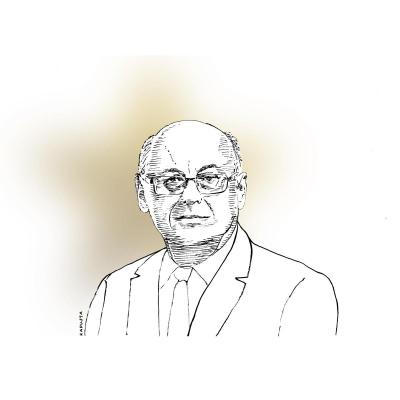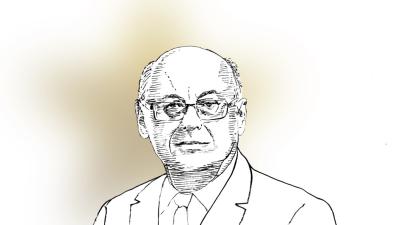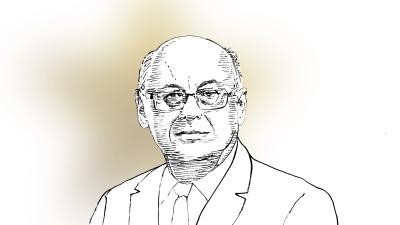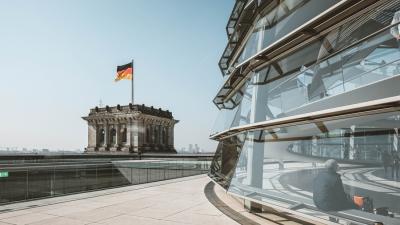from a review of Bronisław Wildstein’s book Bunt i afirmacja (Revolt and Affirmation), to be published in full in the Przegląd Filozoficzny
Around the same time that the threat of “illiberal democracy” and populism became a concern for progressive forces in the “West”, in Poland, in the Third Republic, the era of “naive Occidentalism” that accompanied us during the long years of “transformation” came to an end. As we remember, the Polish transformation was supposed to be “without experiments” and “integrated into Western structures”. It was supposed to be a “return to Europe”, an entry into the world of a higher, better civilisation from which we had been forcibly torn away, torn away by communism. We knew which way to go, how the state and the economy should be organised, and on what general principles Poland was to be based. All that remained was the thorny question of how to achieve this - and it proved more difficult than we thought. The main political and ideological disputes revolved around it - nostalgia for the People’s Republic of Poland was almost always a marginal phenomenon and weakened increasingly with time.
The measure of the progress of our transformation was the adaptation to the West, accomplished by the transfer of institutions and the reception of liberal ideas. There was much right in this if one treated Russia and the Soviet Union as the only competitive civilisational offer. But this “West” was not so much a reality as its idealised image or abstract model. Moreover, no thought was given to its internal diversity, problems, divisions, and conflicts. It seemed a simple and unassailable model. And in this attitude, it is difficult not to notice the backwardness complex consuming the Polish collective psyche since at least the end of the 18th century.
A characteristic example of such an attitude of Polish intellectuals towards the West in the period of transformation can be seen in Jerzy Jedlicki’s book Świat zwyrodniały. Lęki i wyroki krytyków nowoczesności, which is a continuation of or an appendix to his other well-known and important book Jakiej cywilizacji Polacy potrzebują?. In that first book, it was clear that what Poles need - and urgently need - is “Western civilisation”. Undoubtedly, it was the prevailing standard, while Polish peculiarities were a regrettable deviation from the prevailing pattern. What, then, to do with the fact that among the very inhabitants of Western civilisation, there were quite a few eminent thinkers who were not very happy with it? This is precisely the problem the author grapples with in Świat zwyrodniały, quite consistently presenting the self-criticism of Western civilisation as a set of bizarre and not very necessary complaints.
Nowadays, however, analyses of the negative cultural and social features of the “West” are gaining a wider and wider resonance in Poland. They appear not in post-communist circles, which no longer have anything to do with communist nostalgia, their authors are also, or perhaps even primarily, prominent intellectuals and conservative journalists such as Agnieszka Kołakowska, Ryszard Legutko, Wojciech Roszkowski, Bronisław Wildstein, Andrzej Nowak, Antoni Libera. They focus on the identity crisis, the ideological and moral state of Western societies.
This swap of places is characteristic - it used to be the left that was critical of the “rotten West”, today criticism of its weakness or even decadence is the domain of the right. The contemporary Polish left - leaving aside small anti-capitalist neo-Marxist groups - is rather positively disposed towards “the West”. There are no more ardent “pro-EU Europeans” than the former Polish communists, who have metamorphosed into liberals, social democrats, or Christian Democrats. In the European Parliament, they are the most enthusiastic supporters of all EU policies. The liberal left, also disguised as Christian Democrats, tends to be a little more reserved. In contrast, there are more and more doubts among conservatives, as well as among the wider Polish public. These concern immigration policy, raising fears that it will lead to the destruction of European nations and the importation of terror, questioning the idea of an open society, which is also supposed to be open to a vast number of newcomers from completely different cultural backgrounds. Climate and energy policy are also causing much concern and controversy. The very idea of European integration is subject to increasingly harsh criticism. It is also worth adding that this more differentiated reference to the West is accompanied by “borderland nostalgia”. Sentimental journeys undertaken recall the greatness of the First Republic and the ethos of the Second Republic and its modernisation successes. There are visions of a rebirth of the former Republic in a new, modern form of union between the nations that inhabit the territory.
Conservative authors have recently produced many important books confirming this trend. These include Wojciech Roszkowski’s Roztrzaskane lustro (Shattered Mirror), Ryszard Legutko’s Triumf człowieka pospolitego (Triumph of the Common Man), translated in a slightly modified version into many languages. It is undoubtedly one of the most penetrating critiques of contemporary liberal democracy. Legutko’s most recent book on the concept of freedom, which refers to the Treatise on Freedom, can also be included in the strand of such publications. Two collections of essays by Agnieszka Kołakowska, Plague of Nightingales and Culture Wars and Other Wars, awarded the Andrzej Kijowski Prize, should also be mentioned.
All these authors agree that the ideological threat is now coming not from the “East”, not from Russia, which, while remaining brutal, cruel, and aggressive, as evidenced by the war in Ukraine, has lost any spiritual or cultural influence with us, but from the “West”. Even if post-communism, i.e. the political, social, and cultural consequences of communism, were to remain a problem in central and eastern Europe, post-Marxism, in the form of today’s radical cultural tendencies, is considered a “western” phenomenon. And while liberal mainstream “Western” authors develop the story of the regression of liberal democracy in central and eastern Europe, conservatives in central and eastern Europe discover the life after life of Marxism, and thus also of communism, in today’s cultural trends in the “West”.
These publications mentioned by way of example were joined in 2020 by Bronislaw Wildstein’s book Bunt i afirmacja. Esej o naszych czasach, (Revolt and Affirmation. Essays on our times), the most comprehensive and ambitious attempt to confront the mental achievements of the modern and contemporary “West”. What emerges from it, as from the other books mentioned above, is a rather bleak picture of the spiritual state of the “West”. The author has also dealt with many of the themes of this book in his previous volumes of essays, as well as in his - still insufficiently known - literary works, which thoroughly describe the ills of the modern world. Now, however, he has decided to systematise his views and transfer them to the level of philosophical reflection, also referring to the Polish experience.
Revolt and affirmation contains many incisive theses and judgements. Some of them may seem exaggerated, too apodictic, and invite polemics. One may consider that certain cultural phenomena and intellectual achievements are presented too one-sidedly; one may argue about the evaluation of individual thinkers and consider that their views are rendered too schematically.
But such accusations do not seem legitimate to me. This is not a scholarly book but an essay with a huge philosophical charge, which can be compared to Camus’s Rebellious Man, from which, incidentally, Wildstein begins his reflections. Written with passion, the text is thought-provoking for those willing and able to go beyond the beaten track of contemporary orthodox thinking. As always, Bronisław Wildstein “takes the bull by the horns” and poses fundamental questions that academic philosophy often runs away from. He is not concerned with interpretative nuances, but with the crux of the matter, with describing the tendencies of the age and capturing the root cause of what the author sees as a worrying crisis, though not necessarily the twilight, of “the West”. The author does not reject “Western civilisation” as such; in analysing the ills of modern civilisation, he does not claim that it is a genetic or incurable disease. He is not a “Spenglerist” - and it must be added that Spengler has become fashionable again in conservative circles in Europe. Writing about the negative phenomena in contemporary Western culture, Bronisław Wildstein observes that “its decadence, which consists mainly in the breakdown of internal equilibrium, the hyperbolic development of certain of its features, such as individualism or materialism, at the expense of others, may lead, or rather is already leading, to withering and crisis. Nevertheless, the success of the West so far has permanently marked the world for the foreseeable future. While we are able to point to the radical evolution of its basic norms over the last few hundred years, this process can be seen as a growing internal imbalance and, in some aspects, even suicidal tendencies”.
Read also
No More Legal Formalism
The essence of Poland’s conflict with the European Union concerned the extent to which the parliamentary majority could make political decisions that faced criticism and resistance from the courts and whether European law provided for it.













Comments (0)